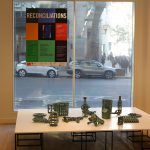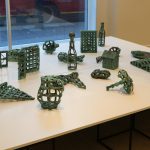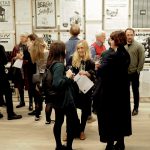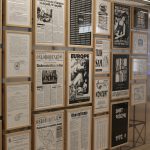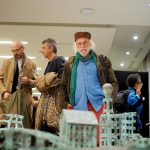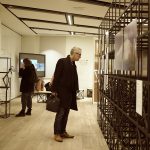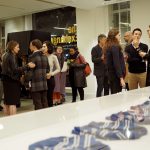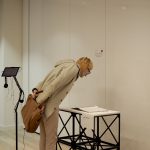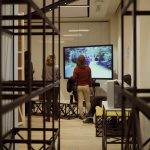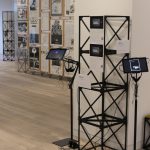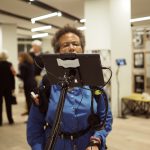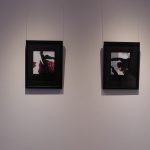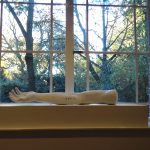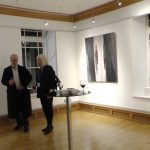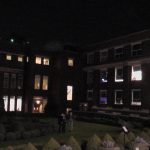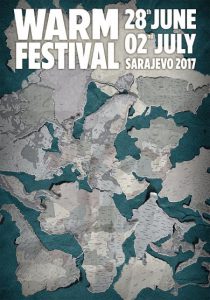Thank you to everyone who came to celebrate the opening of our exhibition, Reconcilations, at The Exchange, Bush House, King’s College London on 1 November 2018, and at the Knapp Gallery, Regent’s University London on 2 November 2018.
We had two wonderful evenings celebrating and discussing the work of all of the wonderful artists whose work is included in the exhibition, including Vladimir Miladinovic who managed to navigate the dreaded visa regime and come from Belgrade to help us install his beautiful series of ink drawings, Memoria Bosniaca, and Dejan Kaludjerovic, who designed a special display about his work, Marbles, for us to exhibit in London. We look forward to being able to exhibit the whole installation in Sarajevo in Reconciliations II later this year. We also saw Mladen Miljanovic’s rocket launcher in operation watering the gardens in Regent’s Quad!
Artists whose work is exhibited at the Knapp Gallery also joined us last night for a fascinating and insightful discussion about reconciliation and the artistic process. We heard from Lola Frost, Pam Skelton, Naresh Kaushai and Gunther Herbst and Emma Elliott about how they navigate contradictions and contestations in their work, and how the reconciliation of paradoxical and seemingly mutually exclusive positions could be managed but not, crucially, necessarily resolved.
We look forward to hosting some of the other featured artists from Bosnia and Hercegovina – Lana Cmajcanin and Adela Jusic (Bedtime Stories), Ziyah Gafic (The Rope), Mladen Miljanovic (MWRL) and Melos Gashi (The Tapes) later this month, and to hearing them discuss their work at the Symposium, together with partners from the Historical Museum of Bosnia and Hercegovina, Stacion – Institute for Contemporary Arts in Prishtina and the Post-Conflict Research Center, Sarajevo, who were instrumental in the commissioning of the work.

